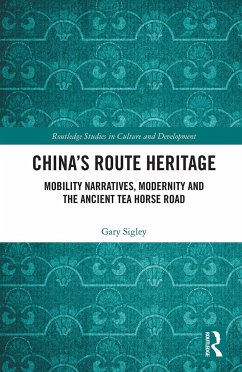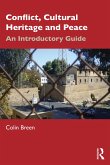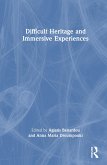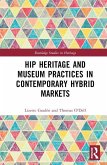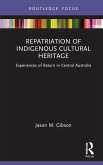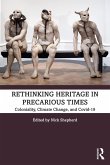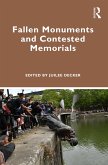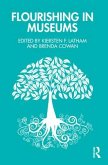China's Route Heritage examines the creation, development and proliferation of the route heritage discourse of the Ancient Tea Horse Road (Chamagudao), in the People's Republic of China.
Examining the formation of the tea-horse road as a concept, its development as a platform for cultural branding, and its most recent interactions with the policy of the Belt and Road Initiative (BRI) and the revival of the discourse on the Silk Roads, the book demonstrates that the tea-horse road is an important part of the discourse on Chinese modernity. Describing the route heritage of the tea-horse road as a 'mobility narrative', whereby an ancient route is used to form a narrative of ethnic unity and cooperation, the book demonstrates that the study of such heritage offers unique insights into issues that are of concern to the wider field of critical heritage studies. Sigley also shows how the study of alternative route heritage enables us to gain a broader sense of route heritage discourse and its implications for the discussion of historical, present and future forms of mobility and connectivity within China and beyond its borders.
China's Route Heritage should be of interest to researchers and postgraduate students who are engaged in the study of heritage, China, the Silk Roads and the BRI, politics, international relations and tourism.
Examining the formation of the tea-horse road as a concept, its development as a platform for cultural branding, and its most recent interactions with the policy of the Belt and Road Initiative (BRI) and the revival of the discourse on the Silk Roads, the book demonstrates that the tea-horse road is an important part of the discourse on Chinese modernity. Describing the route heritage of the tea-horse road as a 'mobility narrative', whereby an ancient route is used to form a narrative of ethnic unity and cooperation, the book demonstrates that the study of such heritage offers unique insights into issues that are of concern to the wider field of critical heritage studies. Sigley also shows how the study of alternative route heritage enables us to gain a broader sense of route heritage discourse and its implications for the discussion of historical, present and future forms of mobility and connectivity within China and beyond its borders.
China's Route Heritage should be of interest to researchers and postgraduate students who are engaged in the study of heritage, China, the Silk Roads and the BRI, politics, international relations and tourism.

